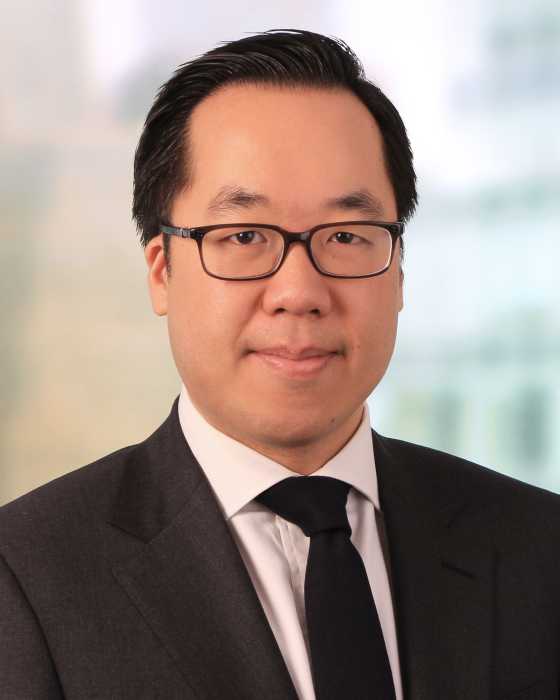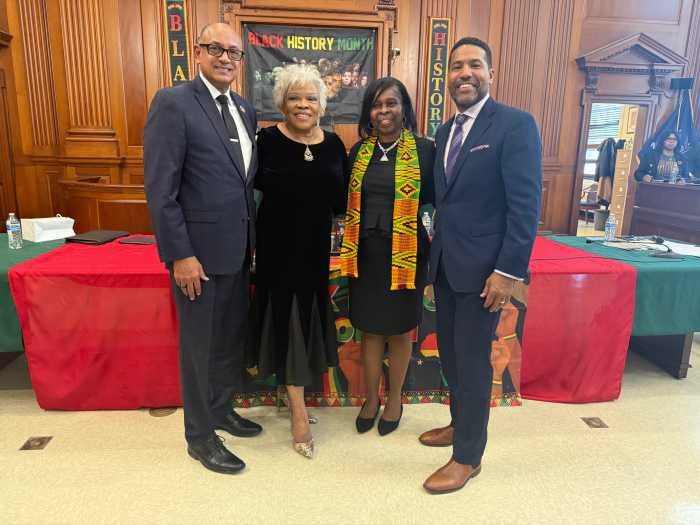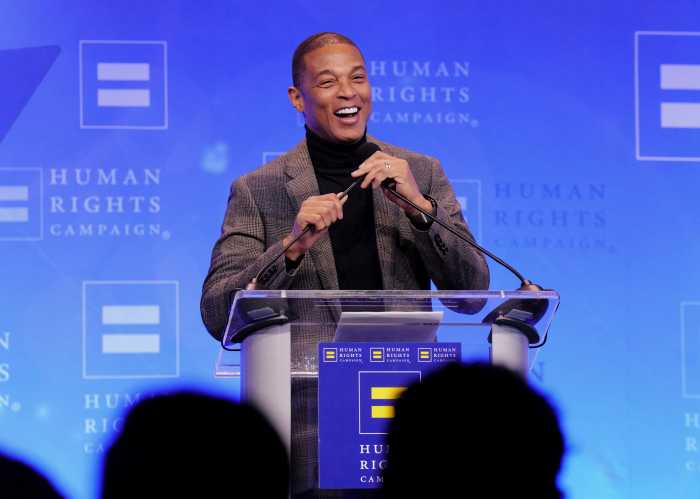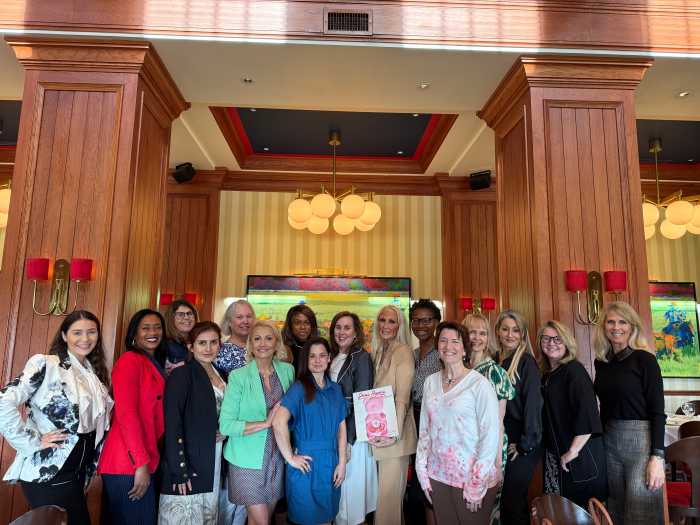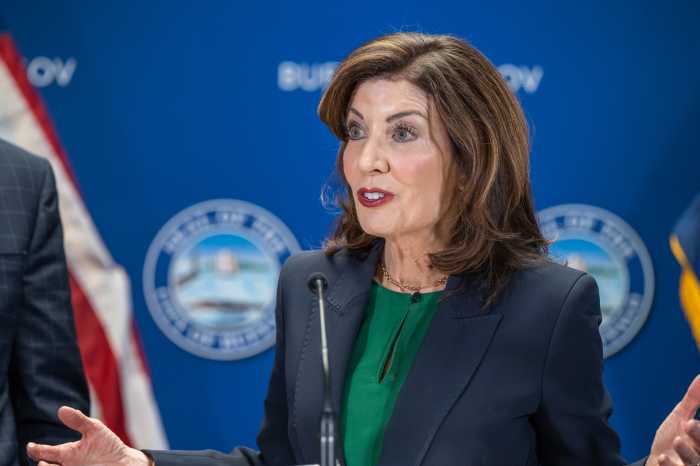Jonathan Law currently leads McKinsey’s global Education Practice and previously led the firm’s economic development work in North America. He also supports a number of state, provincial, and local governments and agencies across North America on large-scale initiatives related to crisis response, economic development, infrastructure, operations, and workforce development. Jon is passionate about working with education, public sector, and philanthropic clients to create a more inclusive economy. He has published on topics related to education access and affordability, inclusive economic growth, and on workforce development.
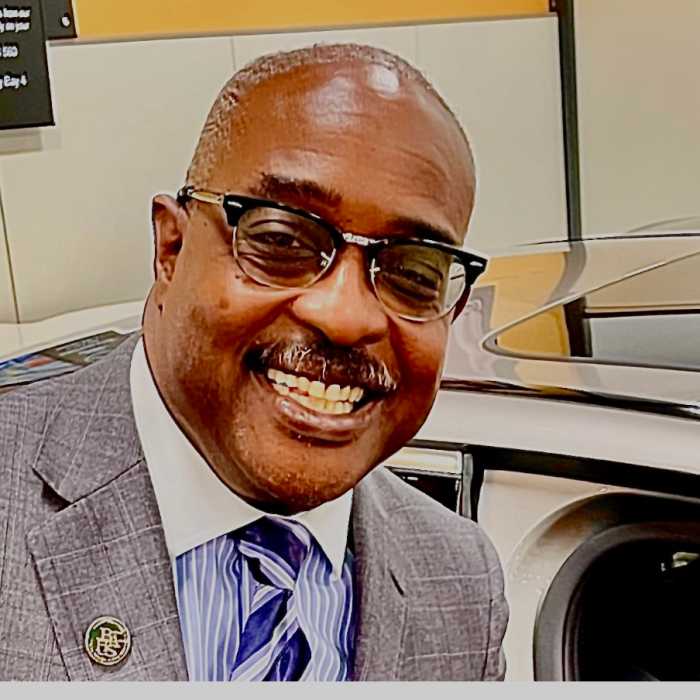
George Leonard
Principal, CAMPA Charter Middle School

George Leonard, principal of CAMPA Charter School, is an award-winning educator, noted for the percentage of his students who successfully pass their Biology Regents exams. Mr. Leonard was in the PBS Special “Who Will Do Science,” and in the book The Bee Eater, and has made appearances on the Oprah Winfrey Show and CNN. He has been featured in The New York Times, New York Post, New York Daily News, Daily Challenge, Our Times Press, The Washington Post, Huffington Post, International Press, and has appeared on Fox News in New York and D.C., NBC, NY1, PBS, ABC, WBAI, and WBLS. He has worked with the NAACP and the New York City Council. Mr. Leonard was also founding principal of Bedford Academy H.S., which was ranked #1 in New York State.
What can New York policymakers do to ensure equitable access to quality education?
Improve school facilities in poor communities so that all students can have an equal playing field for achieving their highest potential. Funding for schools lacking up-to-date lab equipment and computers is essential. Mental health problems coupled with financial hardships are prevalent conditions in NYCHA-related communities. This harsh reality often has a detrimental effect on students being adequately prepared for public school and life in general. Policymakers need to be more cognizant of the long term effects of these factors and be more proactive with initiatives, targeting many of the learners from these fragmented households.
What conditions or resources are conducive to a safe and effective learning environment?
School facilities need to provide adequate lighting, ventilation, pest control, classroom space, and labs to ensure the best optimal conditions for a safe and conducive learning environment. Security as well as state-of-the-art monitoring devices need to be effective for both inside and outside all school buildings. Management of food services and medical emergency protocols must address the needs of all students with common health-related issues in predominantly poor communities.
Describe a learning experience from your own education that stands out.
The most memorable learning experience that stands out in my mind was navigating the lack of new science equipment and textbooks needed to supplement classroom instruction. Many students in my class, as well as myself, struggled to adequately prepare for the challenges of Regents-level courses and the SAT exams. In the schools that I attended, increasing the opportunities for students to be accepted into prestigious schools of higher learning was always filled with limitations and unacceptable outcomes.
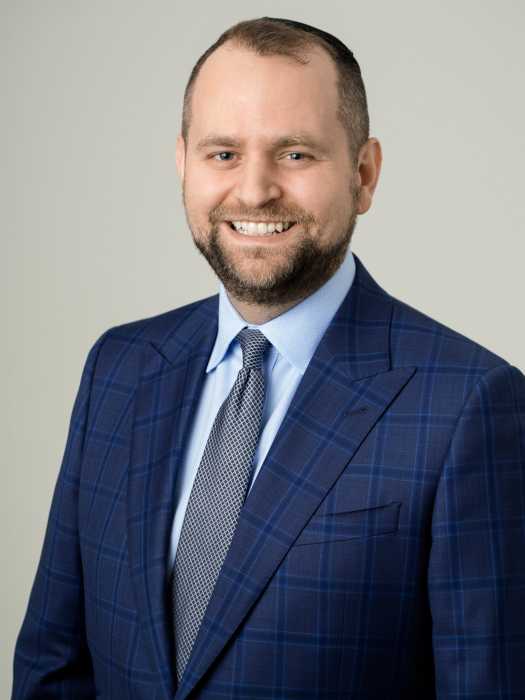
Maury Litwack
Executive Director, Teach Coalition

As founder and executive director of Teach Coalition, Maury Litwack has grown the organization from a single staffer to a multi-state network responsible for billions of dollars in new state funding to non-public schools. He leads Teach Coalition’s advocacy on every issue of import for schools and families: tuition subsidies, STEM advancement, health and nutrition programs, and the priority issue of school safety. Today, Teach is hundreds of schools strong and counts a national core of over 500 politically active lay leaders and thousands of engaged parent and student activists to deliver their message to elected officials and candidates both at the statehouse and back home.
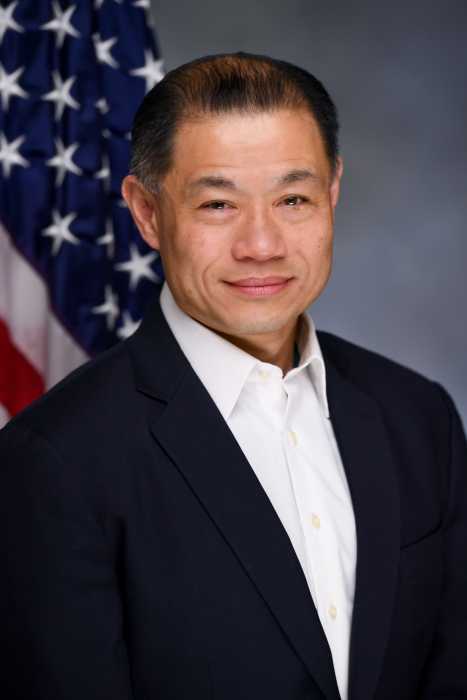
John C. Liu
Senator, New York State Senate

John C. Liu is a New York state senator representing a broad area of northeast Queens. He is chairperson of the Senate’s committee on New York City Education. John was comptroller of the City of New York (2010-2013) and a New York City councilmember (2002-2009). Hailed as a “Trailblazer” and “Pioneer,” John Liu’s historic elections — as the first Asian American to win legislative office in New York and then the first to win citywide office — were milestones for Asian Americans in New York and across the nation.
What can New York policymakers do to ensure equitable access to quality education?
There are many factors that contribute to ensuring our schools are operating at their peak potential. Chief among them is fully funding the Foundation Aid formula, which is how the state funds local school districts. For years, this formula shortchanged New York City students until only recently, when the state began phasing in $1.6 billion more every year to ensure our public school kids are receiving a sound, basic education. By 2023, Foundation Aid will be fully funded, resulting in over a billion more dollars for New York City public schools.
What conditions or resources are conducive to a safe and effective learning environment?
The best way to optimize our students’ learning environment is to ensure class sizes throughout the school system are not excessively large. This past session, the state legislature nearly unanimously passed legislation to finally reduce class sizes in NYC public schools. Educational equity must begin in the classroom, and I have every confidence that the governor will sign this bill into law so our students may finally realize a sound, basic education.
Describe a learning experience from your own education that stands out.
The issue of class size permeates every level of education. As a university professor, it’s plain to see that excessive class sizes encroach on learning in different ways. When class sizes are too large, you tend to lose those students who may be more advanced and need more of a challenge, just as you lose those students who may need more help. Keeping class sizes manageable is the best way to keep students engaged no matter their ability.
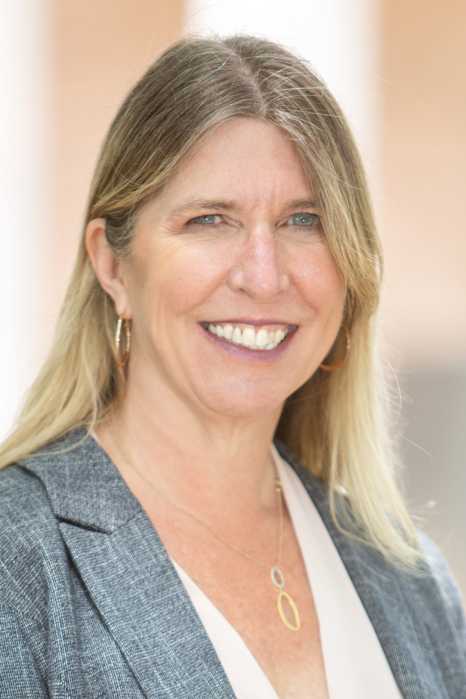
Christine Mangino
President, Queensborough Community College

Dr. Christine Mangino, president of Queensborough Community College (CUNY), began her tenure at Hostos Community College (CUNY) as an assistant professor for Early Childhood Education. There, she also served as coordinator, chairperson, associate dean for academic affairs, and interim provost. She is an alumna of the Aspen Presidential Fellow for Community College Excellence and is known as a national leader in the areas of equity, student success, and for facilitating a culture of care. Dr. Mangino first earned her associate’s degree from Nassau Community College and holds a B.A. and M.A. in Education from Hofstra as well as a doctorate in Instructional Leadership from St. John’s University. Like many community college students, Dr. Mangino was the first in her family to attend college.
What can New York policymakers do to ensure equitable access to quality education?
Students who attend NYC DOE schools are provided with breakfast and lunch, free textbooks, and a MetroCard. Two months after graduating high school, as they are making the most challenging transition to their next level of education, these vital supports disappear. Subsequently, they may need to purchase lunch on campus or make a conscious decision to purchase textbooks at a substantial cost or try to pass their classes without the resources to do the work. And there are days students do not attend classes because they did not have the money for a MetroCard. New York policymakers can extend DOE benefits to students who are commuting to local community colleges, keeping those safety nets in place.
What conditions or resources are conducive to a safe and effective learning environment?
Trust is the most important aspect of a safe and effective learning environment. Learning requires students to take risks, to challenge themselves, try something even if they may fail, and be comfortable being uncomfortable and vulnerable. Students need to know they are in an environment that supports them when they make mistakes, encourages them to take risks, and lends a hand when they need it.
Describe a learning experience from your own education that stands out.
My stand out moment was in a methods class on how to teach elementary mathematics. I was always a strong math student in elementary school, but it was sitting in this methods class when I first realized the concepts behind the mathematical processes. I remember simultaneously thinking, “How did I not know that?” and “Wow, that makes so much sense now!” As an educator, I keep wondering if it was taught like this in my elementary school classes and I just didn’t internalize it or if my teachers did not understand it either and just showed us the process steps?
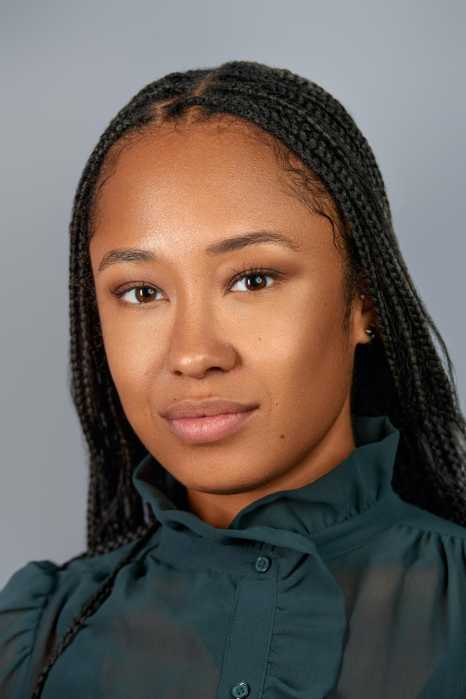
Jacquelyn Martell
New York State Director, Democrats for Education Reform

Jacquelyn joined DFER New York in 2022 as state director. She previously served as the New York State director of advocacy at Achievement First, where she led advocacy, community engagement, and partnership work. Jacquelyn has also worked as a labor organizer for 32BJ SEIU, and as the deputy director of program management and fundraising for the New York Women’s Chamber of Commerce. She is a graduate of the Broad Center Residency in Education Leadership and the Columbia University School of Social Work.
What can New York policymakers do to ensure equitable access to quality education?
New York currently spends more per pupil than any other state, yet still we see wide disparities across student achievement. We need to ensure that policies are in place to guide resources in an equitable way. This means structuring funding so that students with the highest needs are prioritized. It also means we need to expand parents’ choices so that students are not limited by their zip codes. Public charter schools continue to close these gaps for students and their families. If we raise the cap across the state, more children will receive a quality education that meets their needs.
What conditions or resources are conducive to a safe and effective learning environment?
Students need to feel that school is their safe place. This means fully supporting every part of their well-being, including their mental health. We need to prioritize adding school counselors and psychologists to each district. We also need to ensure our educators are high quality and diverse, so that they can meet every child’s unique needs and validate their experiences.
Describe a learning experience from your own education that stands out.
As a teenager, my parents purchased a house in the Bronx, but I opted to attend the high school I was initially accepted into on the Upper West Side — a more affluent district. My brother chose to attend the neighborhood school, which had metal detectors, was riddled with violence, and staunchly underresourced. My parents pulled him out after a year — which was a privilege — but the impact on his mental health was apparent. It was then I truly understood the disparities that existed based on zip code — ultimately shaping my decision to work within the education reform space.
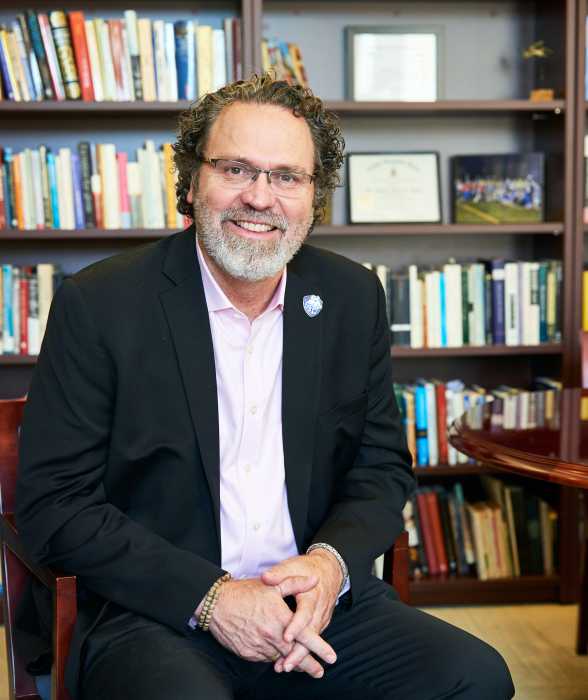
Miguel Martinez-Saenz
President, St. Francis College Brooklyn

Miguel Martinez-Saenz, Ph.D., became the 19th president of St. Francis College in September 2017. Since taking on the role, he has led the College through significant, ongoing growth. Before joining St. Francis College, President Martinez-Saenz served as provost at Otterbein University for three years. Prior to Otterbein, President Martinez-Saenz served in provost positions at St. Cloud State University and Wittenberg University, where he began his career as an assistant professor of philosophy.
What can New York policymakers do to ensure equitable access to quality education?
In New York, there are approximately 1.2 million students enrolled in higher educational institutions across the state. Approximately 500,000 of these students are enrolled in independent colleges and universities. And even as we recognize that the public universities in New York, not without exceptions, are appropriately celebrated for promoting social mobility in some very significant ways, we cannot overlook the role independent colleges/universities play in creating transformative learning environments that significantly promote social mobility.
What conditions or resources are conducive to a safe and effective learning environment?
Whether it be creating cross-functional teams responsible for promoting student success, establishing learning communities that promote the academic and social integration of students, promoting financial aid policies that enable students to focus on their school work, or engaging in curricular and co-curricular redesign, we also need to adopt a mindset that tells us that all students can learn if we provide the types of learning environments that will foster their intellectual, social, and moral growth.
Describe a learning experience from your own education that stands out.
I met with Dr. Maureen Tilley. I remember her asking me questions that demonstrated a keen interest in learning more about “me.” It was maybe the first time a professor demonstrated such interest. And, more significantly, she invited me to take her class once the University accepted my appeal. Taking an interest and inviting students to be a part of something special can enliven the heart and spirit in unimaginable ways.
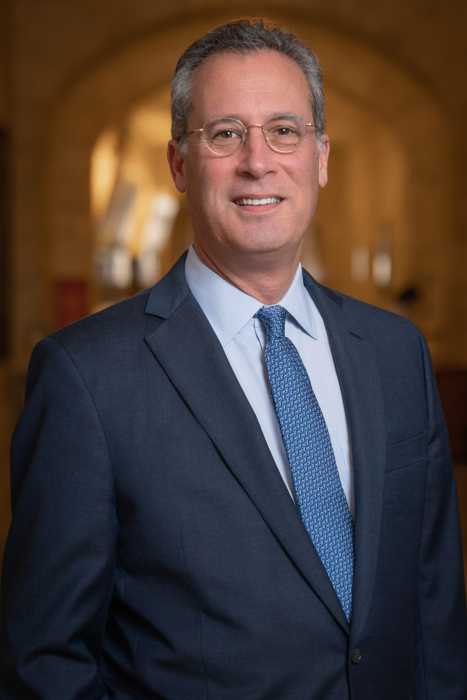
Anthony W. Marx
President, The New York Public Library

Anthony W. Marx is president of The New York Public Library, the nation’s largest library system, with over 90 locations that include neighborhood libraries and research centers. Since joining NYPL in 2011, Marx has strengthened the Library’s role as an essential provider of educational opportunities for all ages. Under his leadership, the Library has created new early literacy and after-school programs for children and teens and improved services for students. Under Marx, the Library has also become a national leader on bridging the digital divide.
What can New York policymakers do to ensure equitable access to quality education?
Educators are the backbone of our education system. At the Library, we strive to provide them with resources and services that can help meet the needs of their students. To ensure equitable access to quality education, it is imperative teachers are supported, whether that’s by improving salaries or hiring more staff. It also requires diversifying access to great teachers, particularly in communities that need it most. We need to be in the business of fostering greater collaboration with our educators and reducing red-tape, developing opportunities for creativity, inspiration, and a joy of learning for both teacher and student.
What conditions or resources are conducive to a safe and effective learning environment?
The past few years have been incredibly challenging for students and teachers. So, it’s no small matter to say in order for students to learn and grow, they need to feel empowered. Supporting great teachers, reducing class size, creating safe and inspiring physical spaces, providing access to materials and the full array of NYC’s rich cultural offerings — all lead to an environment that sustains a child’s desire to seek information and understand the world.
Describe a learning experience from your own education that stands out.
As a child growing up in New York City I have wonderful memories of using my local library in Inwood. To me, the library was a space that encouraged my curiosity and seemed to have a world of information available at my fingertips. It was a place that my parents trusted, where children could find themselves and dream about their future, and a home away from home where neighbors gather with friends. The Library today continues to inhabit that sense of community and collaboration and it remains a wonderful touchstone to the work we do in our branches every day.
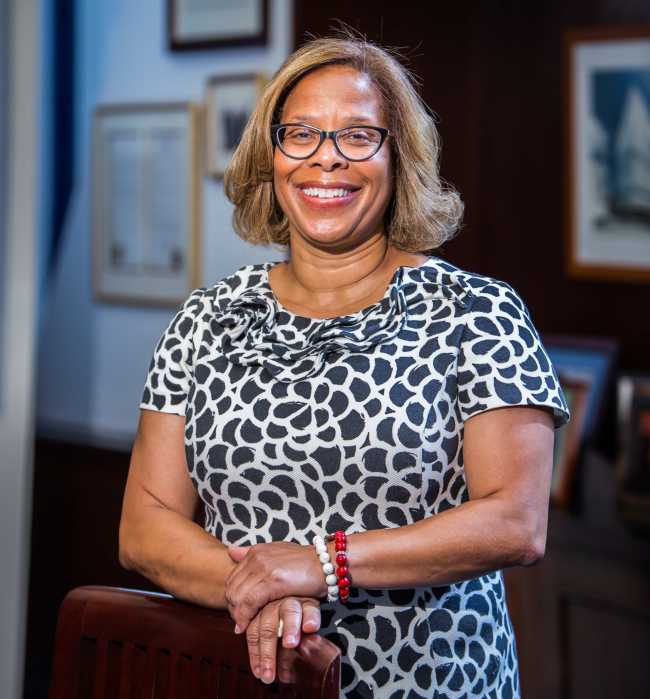
Karol Mason
President, John Jay College of Criminal Justice

John Jay College of Criminal Justice President Karol V. Mason has been a legal pioneer and a voice for equality, fairness, and criminal justice reform. She was a leader in the Obama Administration as United States assistant attorney general for the Department of Justice’s Office of Justice Programs. She led the Department of Justice’s work to address the issue of community trust in the justice system through the National Initiative for Building Community Trust and Justice.
What can New York policymakers do to ensure equitable access to quality education?
We are dedicated to ensuring our students’ success, their future employers’ success and our state’s success. We’re a proven engine of social mobility — and half of our students are both first-generation and from low-income households. We are grateful that the state policymakers created TAP and restored it to incarcerated students. Our hope is that they continue strengthening TAP by extending the duration of academic time and increasing the award minimum and maximum amounts, which is critical to our students’ success. Our hope is they consider extending it to reflect that many of our students face competing priorities — education, work and family.
What conditions or resources are conducive to a safe and effective learning environment?
Our data demonstrates that interventions beyond the classroom experience are critical to their success. This includes faculty mentoring, participation in internships and fellowships, hands-on research opportunities, behavioral health resources and cohort support like our Urban Male Initiative, Veterans Services, immersive STEM program, dedicated transfer student support, and many more.
These practices represent what is perhaps our most powerful contribution to our students’ lives — our promise to them, our faith in them, and our hope for them.
Describe a learning experience from your own education that stands out.
In my senior year of college, a Black woman history professor at UNC held me to a higher grading standard. Years later, she explained that she knew I could do better and pushed me to work harder to earn an A from her. Now I appreciate that she saw my potential and demanded that I perform at a higher level. I want our John Jay students to know we expect excellence from them and believe in their brilliance.
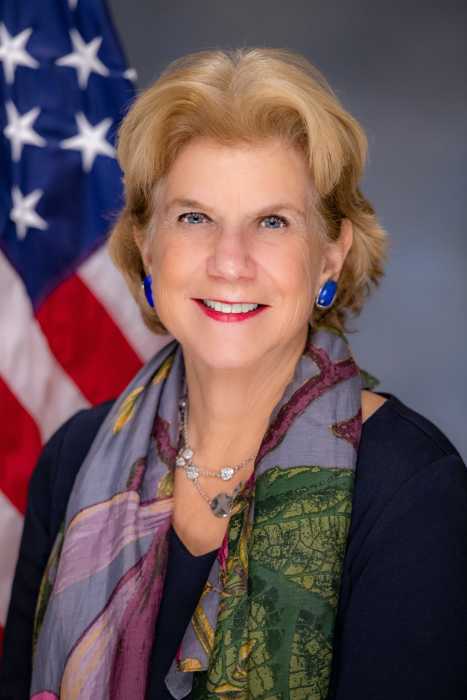
Shelley Mayer
Senator, New York State Senate

State Senator Shelley Mayer is an experienced and progressive leader who has spent her career as an advocate for New Yorkers. Mayer was elected to the New York State Senate to represent the 37th District in an April 2018 special election, and she was subsequently re-elected in November 2018 and 2020. Prior to her time in the State Senate, she served in the State Assembly for six years.
What can New York policymakers do to ensure equitable access to quality education?
We must ensure our students and teachers have the tools they need to maximize the learning experience and prepare students for the future. At the start of the pandemic, when students across New York State switched to remote learning, inequities became demonstrably clear, particularly with respect to broadband and hardware access. In response, I introduced the E-LEARN Act to provide free, high quality broadband to every student and school during the pandemic. Although it was not signed, policymakers must continue to press this issue. We cannot wait for the next emergency to guarantee equitable access to quality education.
What conditions or resources are conducive to a safe and effective learning environment?
A safe and effective learning environment is one that addresses the mental health of our students and staff. The legislature has taken important steps to address mental health, including providing funding in the budget for mental health services; requiring stakeholder involvement for use of COVID funds so communities could address their local needs, including mental health; and passing legislation to restrict teen access to guns, a proven way to reduce suicide.
Describe a learning experience from your own education that stands out.
As a Yonkers public school student in Junior High School in the 1960s, I strongly opposed the War in Vietnam and recall wearing a black armband to symbolize my opposition. My social studies teacher was in support of the war, but created a space where we could both discuss our points of view without crossing into a space of personal attack and where he treated my opinion, even as a student, with respect. I’ve carried that lesson with me and believe we should continue to encourage meaningful conversations and not shy away from respectful disagreement on important issues.


